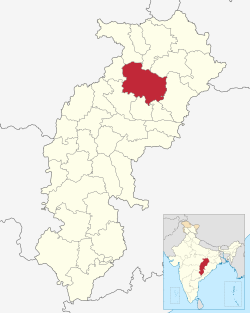
The Supreme Court bench, comprising Justices B.V. Nagarathna and S.C. Sharma, delivered contrasting perspectives on the matter. Justice Nagarathna condemned the actions of local authorities who opposed the burial in the village graveyard, emphasizing the need for designated burial spaces for the Christian community. She stated, "We want that there should be a designated place for the Christian community to bury their dead in terms of their religious rites." This sentiment underscores the importance of religious rights and the necessity for inclusive community practices.
Conversely, Justice Sharma focused on procedural propriety and the importance of adhering to existing designations of burial grounds. He noted that the state had provided a designated burial ground for Christians from multiple villages, located approximately 20 kilometers from Chhindwara. The state, represented by Solicitor-General Tushar Mehta, expressed concerns over potential law and order issues if the village's Hindu tribal-designated land was used for the burial. Mehta assured the court that the state would provide all necessary support for the burial at the designated site, including transportation and logistical assistance.
Senior advocate Colin Gonsalves, representing Baghel's family, argued against the need to bury the deceased outside the village. He highlighted that the family had previously conducted burials in the village graveyard without incident, suggesting that the recent opposition was a new development. Gonsalves contended that asking a convert Christian to go elsewhere for burial constitutes discrimination.
The Chhattisgarh High Court had earlier dismissed the family's petition to bury Baghel in the village graveyard, citing concerns over potential disturbances to village peace and noting the availability of a Christian cemetery 20-25 kilometers away. The court emphasized the importance of maintaining communal harmony and adhering to designated burial sites to prevent conflicts.
This case brings to the forefront the challenges faced by religious minorities in rural India concerning burial rights and the allocation of communal resources. It underscores the delicate balance between respecting religious customs and maintaining public order, a balance that the judiciary must navigate carefully. The differing opinions within the Supreme Court reflect the complexity of such issues, where legal principles intersect with deeply held cultural and religious beliefs.
The prolonged plight of Baghel's family, with the deceased's body remaining in the mortuary for nearly two weeks, prompted the bench to permit the burial at the designated site outside the village in Karkapal as a compromise. This decision aims to address the immediate concerns of the family while considering the broader implications for community relations and legal precedents.
The case has garnered attention from various quarters, including human rights organizations and religious groups, who view it as a litmus test for religious freedom and minority rights in India. It raises pertinent questions about the adequacy of existing policies in accommodating the diverse religious practices within the country and the role of the judiciary in safeguarding these rights.
As the nation watches, the outcome of this case could set a significant precedent for how similar disputes are handled in the future, potentially influencing policy decisions and community practices across India. The Supreme Court's final ruling is awaited with keen interest, as it will not only impact the parties involved but also resonate with broader themes of religious freedom, minority rights, and communal harmony in the country.
